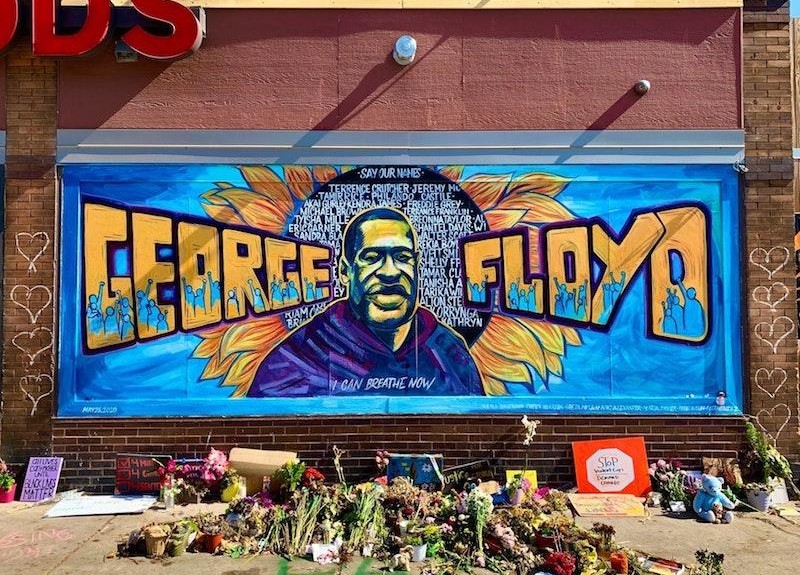Deployed all too often in court proceedings and other venues, the tactic shows how far we still have to go in thinking about addiction
By Jason Langendorf
April 6, 2021The headline-making proceedings underway at Hennepin County District Court in Minneapolis are probably referred to as “the George Floyd trial” just as often as they invoke the name of Derek Chauvin, the police officer being prosecuted on murder and manslaughter charges in the death of Floyd last May.
That usage may seem harmless, whether in news reports or in casual conversation among friends and colleagues. It’s a mnemonic, a touchstone, an easy association that cuts to the chase. But it’s more than that—because Chauvin isn’t the only one on trial this week. So, too, is Floyd’s drug use.
When you don’t have facts, you have to assassinate his character. When they talk about opioid abuse, you have to understand that there are tens of thousands of people across America who are self-medicating, and they get addicted to things like opioids.”—Philonise Floyd, George Floyd’s brother
For decades, airing out the addiction or drug use of a detainee or defendant has been a go-to tactic for law enforcement and prosecutors to justify punishment—including police violence—and to sway jurors. That Chauvin’s attorney has chosen to focus on the fentanyl and methamphetamine found in Floyd’s system when he was killed speaks volumes about how ingrained the punitive measures toward those with addiction are in our culture. Floyd isn’t the man on trial, but it sure seems like he is.
“When you don’t have facts, you have to assassinate his character,” Philonise Floyd said on MSNBC’s The Sunday Show, speaking of the defense’s characterization of his brother’s drug use. “When they talk about opioid abuse, you have to understand that there are tens of thousands of people across America who are self-medicating, and they get addicted to things like opioids.”
The Toll of the War on Drugs
In 2018, more than 1.6 million arrests were made for drug law violations, of which more than 1.4 million were for possession only. As overdose numbers rise, healthcare systems fall short in treating addiction and the United States spends an annual $47 billion in the War on Drugs, it’s clear that punishment is an ineffective “deterrent” to drug use and addiction. The tough-on-crime drum that policymakers have banged for so long, equating drug use with criminal activity and stigmatizing drug users as deviants, has only fanned the flames of our national crisis. At the same time, it has sent a clear message about Floyd and countless others like him with addiction: They brought it on themselves.
It’s important to begin holding to account our systems for their approach to drug use. They wield it as a cudgel rather than a call to action for more effective policy and treatment.”
The story of George Floyd and the case of Derek Chauvin are made up of a nearly endless number of interlocking pieces—police brutality, race and local politics, for starters—that we can’t fully litigate here. But it’s important to begin holding our systems to account for their approach to drug use. They wield it as a cudgel rather than a call to action for more effective policy and treatment.
Society Failed George Floyd
In his opening arguments, prosecution attorney Jerry Blackwell reviewed the Minneapolis Police Department’s use-of-force policy, which states as a core principle that a person “in your custody, is in your care.”
“It’s not a feeling,” Blackwell said. “It’s a verb. It’s something you’re supposed to do. To provide care for that person.”
No matter what the outcome of the Derek Chauvin trial, the Minneapolis Police Department failed on that front. The department failed to care for Floyd—a father, brother, friend to many and, yes, a person with addiction. That failure is a terrible shame. But it will be a greater shame if the cogs of yet another system allow George Floyd to be labeled an “addict,” implying that his death was his own responsibility.
Jason Langendorf is a reporter for TreatmentMagazine.com.
Photo: Jean Beller













